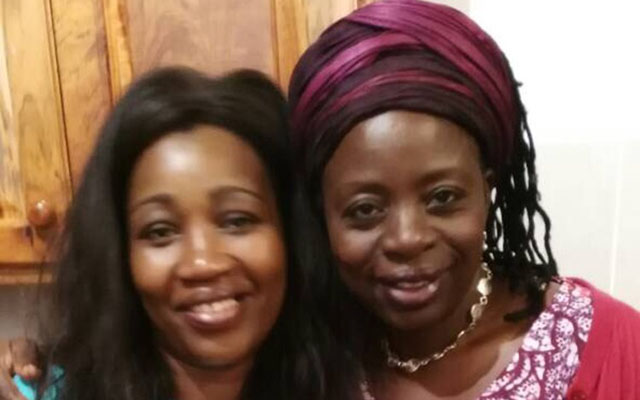Reclaiming role of the aunt as a Father figure

Sekai Nzenza On Wednesday
When I was growing up in the village, Tete was a person to be respected. Tete was the name we gave to my father,s sister.
In English we would call them aunts. But this is confusing because aunt can mean Mainini, meaning young mother. Aunt is also used to show respect to a woman who may not be related to you.
Tete was a scary person to us. She had power similar to that of our father. My mother would point to our Tete and say, she is your father. Ndivo baba venyu. Each time one of the Tetes walked into our homestead from wherever she was married, my mother rushed to embrace her.
They sat down and after some moments, my mother politely clapped her hands to ask about Tete’s health and that of her family. Likewise, my sisters and brothers would also clap hands to say how are you Tete. The manner in which we talked to Tete showed how much we had been educated to show respect to her as “our father”.
It was Tete’s responsibility to ensure that girls were taught and instructed on matters to do with puberty, courtship and the process of marriage. Any taboo subjects that could not be shared with our mother, were discussed with Tete while our brothers shared similar issues with Sekuru, our mother’s brother.
My grandfather Sekuru Dickson had eight wives, with Mbuya VaMandirowesa being the first wife. Sekuru’s wives had daughters, who were my father’s half-sisters. As a result, there were many Tetes in our village. But we did not refer to them as our father’s half-sisters. No. That was not a respectable way to describe vana tete, our aunts. They were simply Tete Emma, Tete Winnie, Tete Muchademba, Tete Esther, Tete Verina, Tete Matinetsa, Tete Mandivenga, Tete Susan, Tete Tamari and many others.
Most of my Tetes are gone now. But I still have at least three left. Among them is Tete Verina, whose nick name is VaZvindibve. She was very close to my mother. Tete VaZvindibve was married to a man called Gumindega and they lived near Shava Mine in Buhera.
I recall her being very tall and light skinned with freckles covering her nose. Her eyes were brown and each time she looked at you, it was like the bottom of her eyelids was bleeding. But that was only because everything about her was so light or brown.
When she arrived in our homestead, my mother used to ululate and dance, saying, Murungudunhu auya.
The rural European has arrived. Since she was the muroora or sister-in-law to Tete VaZvindibve, the two had a joking relationship. There were times when they could tease each other and laugh so much until their ribs ached.
Then the moments of such laughter would end when Tete cast her eyes upon us. She looked very stern and took us, one by one, behind the village hut. She subjected us to the aunt and niece interview: How old are you now? What grade are you in? Are you able to fetch water in a big clay pot and not break it? Can you look for firewood and bring a big bundle of it home? Can you select good peanuts, shell them, roast, pound them and make peanut butter on a grinding stone? Can you roast the red millet, grind it into flour and cook proper sadza from it? Can you kill a chicken, pluck its feathers, and cook it for the whole family?
To my older sisters, Munyengetero and Varaidzo, the questions were more advanced. Tete VaZvindibve asked them whether they had been to the moon, meaning, have you had your first menstrual period yet? Are you seeing a boy? Tete demanded to see the boy. Tete expected us to do all the household duties by the time were aged 12.
I have vivid memories of Tete VaZvindibve visits from Shava. One day, she arrived in our homestead towards sunset. She sat and drank tea with sweet potatoes. At that time, my oldest siblings were Munyengetero, who was the first born and training to be a teacher at Kwenda Mission. Second was Sidney, studying at Kutama Mission. Varaidzo was third in Form Three at Tegwani Mission in Plumtree and Charles was in Form Two at Kwenda Mission.
These four older siblings of mine used to boast that they were the most educated in the village because they attended boarding school and spoke English. On the day Tete VaZvindibve arrived, they were staging a dance on the verandah of our corrugated iron roofed house away from the kitchen hut and the public.
They were dressed in their bell bottoms and platforms even though they were not going anywhere, not even to Muzorori & Sons Store, where all the young men and women met to dance to records. They were practising the dance at home so that nobody at boarding school would look down upon them and call them SRB, strong rural background, therefore uncivilised and lacking Western exposure.
Charity, who had stopped going to school at the time because there was no money for school fees, was the DJ. She played long play records on the Supersonic Stereo System. Paida and I sat on the ground, with babies Vongai and Raviro on our laps while we watched the dancing on the verandah.
Nobody among us expected Tete VaZvindibve to come to the verandah. Her normal routine was to sit and exchange village gossip with my mother for hours. But on this particular Sunday, Tete came to see what was going on.
When Tete made her appearance, my four older siblings were dancing to Bob Marley’s “No Woman No Cry”. Before that, Charity had played Dolly Parton and Kenny Rogers’s “Islands in the Stream” and other songs.
VaZvindibve made her appearance known by coughing loudly. She then stood there, with her hands on the hips and said, “Baba we Nhuka! Ndicho chii ichochi?” I swear by my father the Eland, what do you think you are doing? The four of them stopped dancing and immediately sat on the cement floor. Charity switched off the music.
There was an awkward silence. Charity giggled first and then we all did. Tete said this was no laughing matter. She addressed Munyengetero and Varaidzo, “When did you become European women that you should wear pants? Do you want to be men?” Turning to Sidney and Charles she said, “You are the fathers of the homestead. Why do you dance with your sisters like this?” The boys said nothing. Charity, who was always more outspoken, then said something about fashion and how we should all learn to move with times. Tete was very angry.
She gave us all a lecture on how we should not follow Western ways because we would lose hunhu, humanness. Tete VaZvindibve is still alive. Recently, Sidney, Piri, Babamunini Ruka and I visited her in Shava. She is in her 80s now and cannot walk, because she broke her hip and spent weeks at Harare Central Hospital. The hip did not heal. Tete has learnt to crawl and do minor household work with the help of her daughter.
I reminded her of the incident of the bell bottoms and trousers. She laughed and said, “Ah, muzukuru, those were the days when we as vana Tete had a lot of power. Not anymore. You think I can tell you what to do now?”
Tete said the churches have taken over the role of the Tetes. She said these days, you hear a young woman saying she has a Tete at the church, Sekuru at the church, grandmother at the church. If a couple has marriage problems, the elders at the church will deal with the matter. “As we get older and die away, the power of Tete will continue to disappear,” Tete VaZvindibve said, shaking her head.
I said that was true in many cases but there were families in town, who still remember that Tete is important. Two weeks ago I was invited to attend a lobola ceremony in Borrowdale where my friend Regina’s niece was getting married. Like me, Regina tries to balance traditional and modern ways.
The Tetes at the ceremony arrived in their expensive cars, makeup and all. The ceremony was carried out the same way it would have been done in the village. One Tete moved around with a video recorder, so that relatives in the Diaspora could witness the whole process.
We can adjust and use technology in our communication, as long as we recognise the role of Tete to our cultural traditions and give her the respect she deserves. The church cannot replace Tete. At the same time, Tete should also adjust to change and offer appropriate advice where needed.
We may no longer fear Tete as we used to do, but we can respect her and give her the power she deserves. Tete is the sister to your father. She is a woman, but she is a father. Tete ndibaba.
- Dr Sekai Nzenza is a writer and cultural critic.








Comments